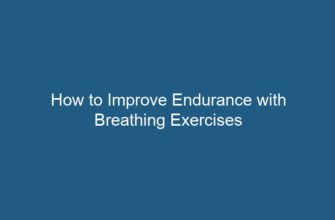Walking is a popular form of exercise that can be enjoyed by people of all ages and fitness levels. Whether you walk for leisure or incorporate it into your daily routine, it’s important to know how many calories you can burn during a walking session. In this article, we will explore the factors that influence calorie burn during walking and provide a detailed analysis of the calories burned at different speeds and distances.
- Factors Affecting Calorie Burn
- 1. Body Weight
- 2. Walking Speed
- 3. Distance
- 4. Inclines and Terrain
- 5. Muscle Mass
- Calories Burned at Different Walking Speeds
- 1. Slow Pace (2 mph)
- 2. Moderate Pace (3.5 mph)
- 3. Brisk Pace (4.5 mph)
- 4. Power Walking (5 mph)
- Calories Burned Based on Distance
- Frequently Asked Questions
- 1. Can walking help with weight loss?
- 2. How many steps should I take to burn calories?
- 3. Can walking help improve cardiovascular health?
- 4. Is it better to walk on a treadmill or outdoors?
- 5. Can walking reduce the risk of chronic diseases?
- 6. How can I make walking more challenging?
- Conclusion
Factors Affecting Calorie Burn
Several factors influence the number of calories burned during walking. Understanding these factors can help you estimate your calorie expenditure more accurately:
1. Body Weight
Body weight plays a significant role in determining the number of calories burned while walking. Generally, the more you weigh, the more energy you require to move your body, resulting in a higher calorie burn. For instance, a person weighing 160 pounds will burn more calories compared to a person weighing 120 pounds, assuming they walk at the same pace and distance.
2. Walking Speed
The speed at which you walk also affects the number of calories burned. Walking at a faster pace requires more energy and thus burns more calories per minute. However, walking too fast may not be sustainable for longer durations, so finding a comfortable pace is crucial.
3. Distance
The distance covered during a walking session also impacts calorie burn. Walking a longer distance results in a higher calorie expenditure compared to shorter distances.
4. Inclines and Terrain
Walking on inclines or varied terrains, such as uphill or on uneven surfaces, requires more effort and engages different muscles. This increased effort leads to a higher calorie burn compared to walking on flat surfaces.
5. Muscle Mass
The amount of muscle mass in your body affects your basal metabolic rate, which is the number of calories burned at rest. Having a higher muscle mass increases your metabolic rate, resulting in more calories burned while walking.
Calories Burned at Different Walking Speeds
Now, let’s delve into the specific number of calories burned at different walking speeds. Bear in mind that these values are approximate and can vary based on individual factors:
1. Slow Pace (2 mph)
At a slow pace of 2 miles per hour, a person weighing around 160 pounds can expect to burn approximately 204 calories per hour. This equates to around 34 calories burned per 10 minutes of walking.
2. Moderate Pace (3.5 mph)
Walking at a moderate pace of 3.5 miles per hour can result in a calorie burn of approximately 314 calories per hour for a person weighing 160 pounds. This amounts to around 52 calories burned per 10 minutes.
3. Brisk Pace (4.5 mph)
Walking briskly at a pace of 4.5 miles per hour can significantly increase the calorie burn. A person weighing 160 pounds can expect to burn approximately 428 calories per hour, or around 71 calories per 10 minutes.
4. Power Walking (5 mph)
Power walking at a speed of 5 miles per hour intensifies the calorie burn. For a person weighing 160 pounds, the estimated calorie burn is around 544 calories per hour, which is approximately 90 calories per 10 minutes.
Calories Burned Based on Distance
Walking longer distances naturally leads to a higher calorie expenditure. Here’s an estimation of calories burned based on distance for a person weighing 160 pounds:
| Distance | Calories Burned |
|---|---|
| 1 mile | 88 calories |
| 3 miles | 264 calories |
| 5 miles | 440 calories |
| 10 miles | 880 calories |
Keep in mind that these values are approximate and can vary based on individual factors. It’s also important to note that the calorie burn values mentioned above are specific to a person weighing 160 pounds. Higher body weight will generally result in a higher calorie burn, while lower body weight will lead to a lower calorie burn.
Frequently Asked Questions
1. Can walking help with weight loss?
Yes, walking can be an effective form of exercise for weight loss. By incorporating regular walking sessions into your routine and maintaining a calorie deficit, you can achieve weight loss over time.
2. How many steps should I take to burn calories?
There is no one-size-fits-all answer to this question as the number of steps required to burn calories can vary based on factors such as body weight, walking speed, and distance. However, aiming for a daily step count of 10,000 steps is a good starting point.
3. Can walking help improve cardiovascular health?
Yes, walking is a low-impact aerobic exercise that can improve cardiovascular health. Regular walking can help strengthen the heart, lower blood pressure, and improve overall cardiovascular fitness.
4. Is it better to walk on a treadmill or outdoors?
Both walking on a treadmill and outdoors have their advantages. Treadmill walking provides a controlled environment and allows you to adjust speed and incline. Outdoor walking offers fresh air, varied terrain, and the opportunity to connect with nature. Choose the option that suits your preferences and availability.
5. Can walking reduce the risk of chronic diseases?
Yes, walking regularly can help reduce the risk of chronic diseases such as heart disease, type 2 diabetes, and certain types of cancer. It is a simple and accessible form of exercise that can have significant health benefits when done consistently.
6. How can I make walking more challenging?
If you want to make your walking sessions more challenging, you can incorporate interval training by alternating between periods of brisk walking and slower recovery walks. You can also try adding inclines or walking on varied terrains to engage different muscles and increase the intensity of your workout.
Conclusion
Walking is an excellent form of exercise that offers numerous health benefits. The number of calories burned during a walking session depends on various factors, including body weight, walking speed, distance, inclines, and muscle mass. By understanding these factors and incorporating regular walking into your routine, you can optimize your calorie burn and enjoy the many advantages of this simple yet effective exercise.










